Three words from North Landing Elementary School (NLES) third-grade teacher Tracy Coffin are the most anticipated of the afternoon.
“Let’s. Start. Building!”
Students grab construction kits. Adult volunteers secure hammers.
Materials and instruction sheets are scattered across cafeteria tables.
The battle of the birds, butterflies, bees and bats begins.
“Bats are good for the environment because they eat insects,” said second-grader Haxton Mello who is assembling a bat house with help from his dad. “Bats mostly live in caves, but here they can live in these bat houses.”
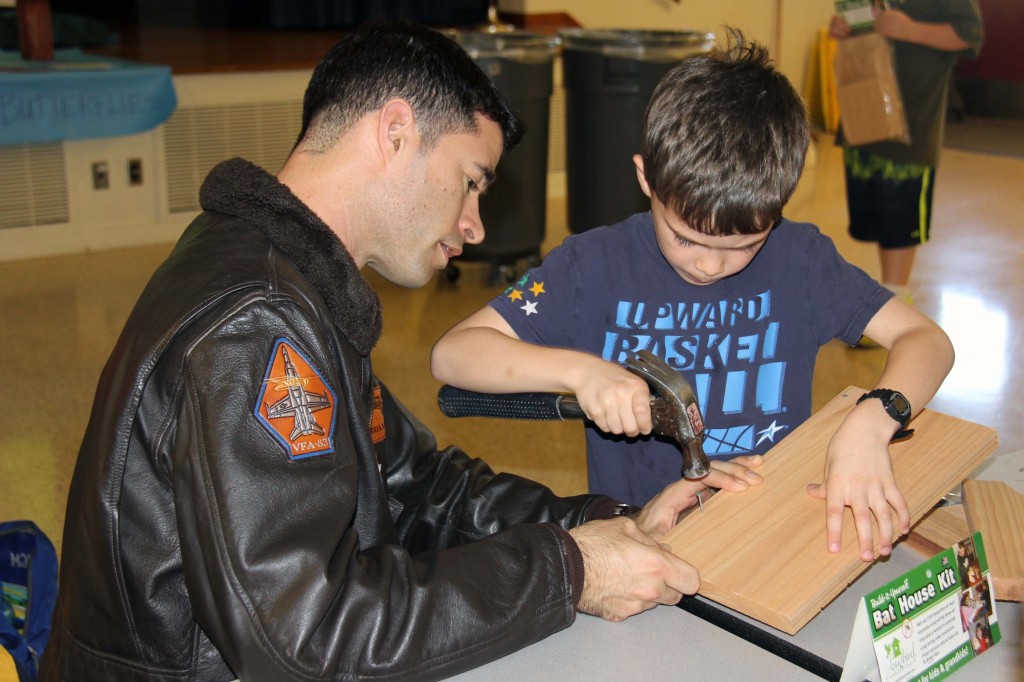
At a nearby table, second-grader Mikaela Farley defends butterflies.
“Their wingspan is really big, and it can probably knock other bugs out of the air,” she says.
Farley’s butterfly teammate David Morales adds, “They are good because they don’t sting.”
Fifth-grader Jack Klindienst supports his stinging bees as best for the environment.
“Bees carry pollen and spread pollen to make more flowers and that is good,” he explains. “Flowers are good.”
“Birds,” reports fourth-grader Audrey Latta, “are good for the environment because they eat worms and keep the food chain in check.”
“Think of all the worms if we didn’t have birds,” Latta adds. “They would be everywhere!”
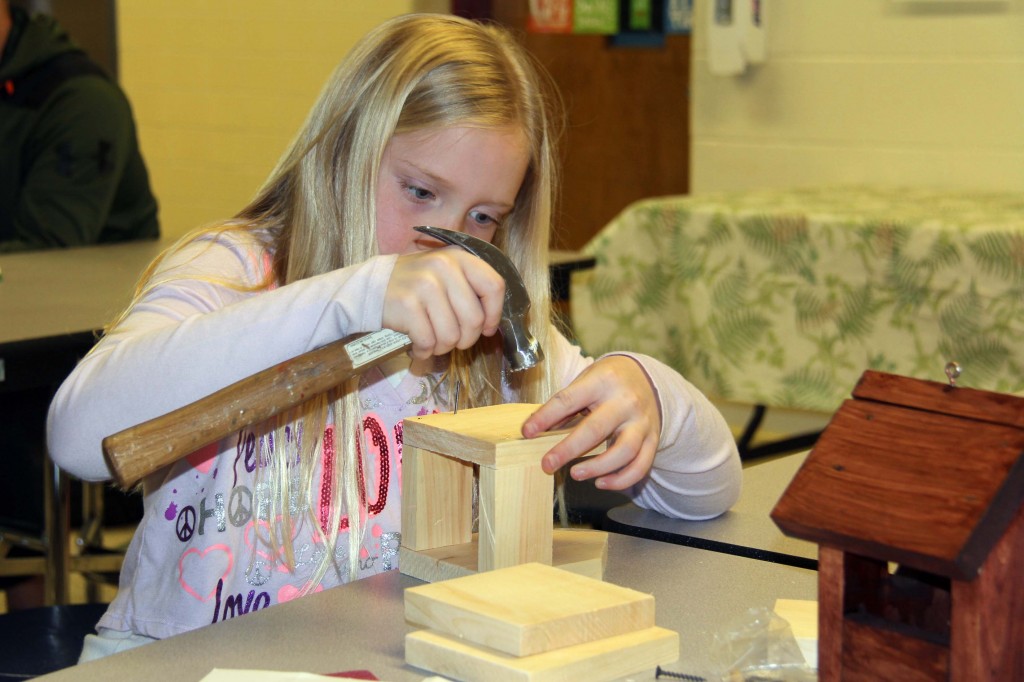
Latta need not worry about an invasion of worms any time soon.
She and her fellow NLES ecology club members are constructing shelters for birds as well as homes for bees, bats and butterflies to be placed in the school’s garden. The afternoon building session is one of the final steps in a project that club sponsor and NLES teacher Coffin thought of this summer.
Talking over the sound of three dozen hammers at work, Coffin explained she read a newspaper article about the Norfolk Botanical Garden and how to build a bee house. After seeing a different article about butterfly houses, Coffin began to brainstorm ideas for a hands-on environmental lesson that would also enhance the school’s garden.
“I love bats, so I knew we also had to have bat houses,” Coffin said. “Most people are afraid of bats. I don’t think they know how they good they are for environment.”
She added birds to the plan and began researching options for build-it-yourself house kits. With funding from a Virginia Beach Education Foundation (VBEF) innovative learning grant underwritten by RRMM Architects, Coffin was able to purchase kits and other resources to support the new project.
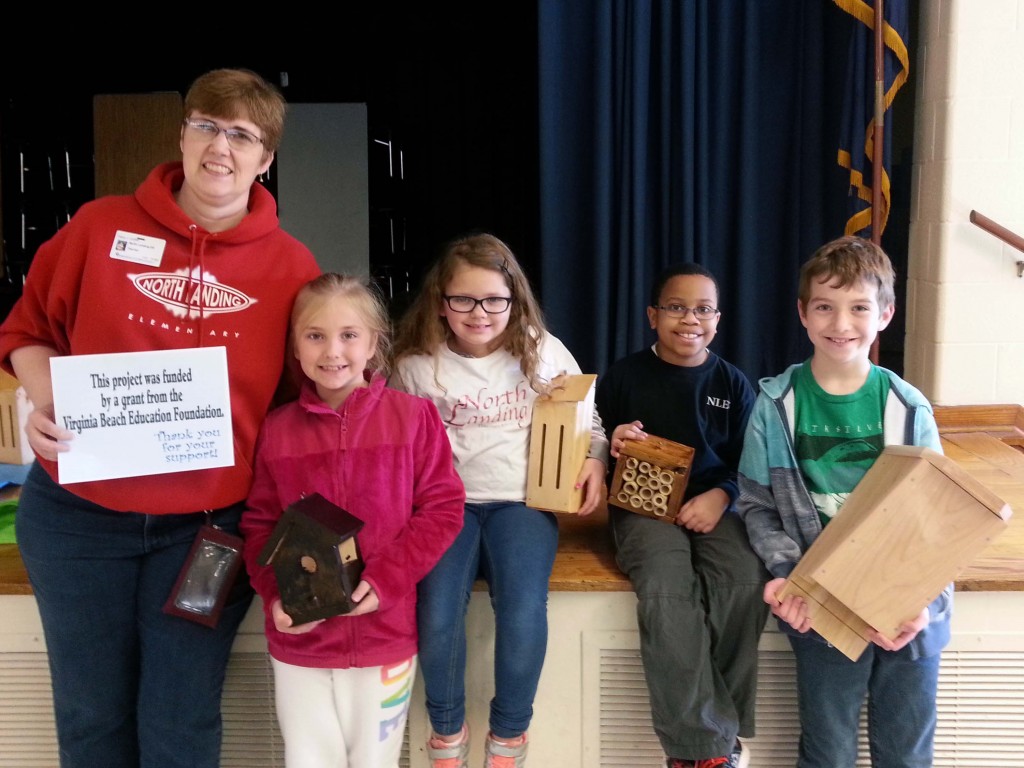
“Most students have a natural interest in animals, but seldom do they think about how those animals are interdependent in our environment,” Coffin wrote in her grant application. “This program will allow students to build on their interests, apply their research skills as they find facts, work on communication skills to present those facts in a debate format, and gain understanding about how our school garden environment depends on animals for pollination and insect control.”
The culminating bird-bat-butterfly-bee debate is in two weeks, and ecology club members are ready.
Fourth-grader Jake Miller is buzzing with excitement about bees and his research.
“Their bodies are completely different from humans, and they have parts that I have never heard of before,” Miller says. Pointing to the student PowerPoint presentations rolling on the cafeteria screen, he adds, “You can check out my slide if you want to learn more about body of a bee.”
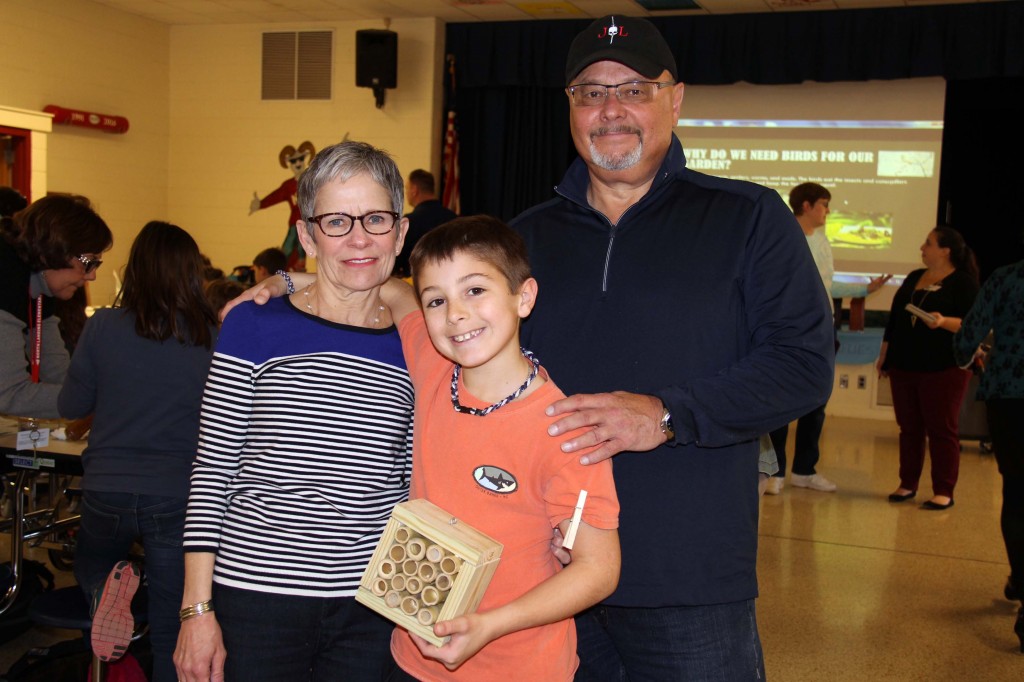
Third-grader Kylie Marlow shows off her finished product and her new knowledge. “Butterflies can live up to 12-years,” she says. “I didn’t know that before my project.”
Isaac Loftus shares more information. “Butterflies have lots of different species and having lots of variety is good because they all eat different things,” he says.
Also highlighting the importance of her animal’s eating habits, Caitlin Samella states, “Birds eat bugs that would eat plants. That definitely helps.”
Fellow bird group member Kennedy Monahan is too focused to talk. She has a birdhouse to finish.
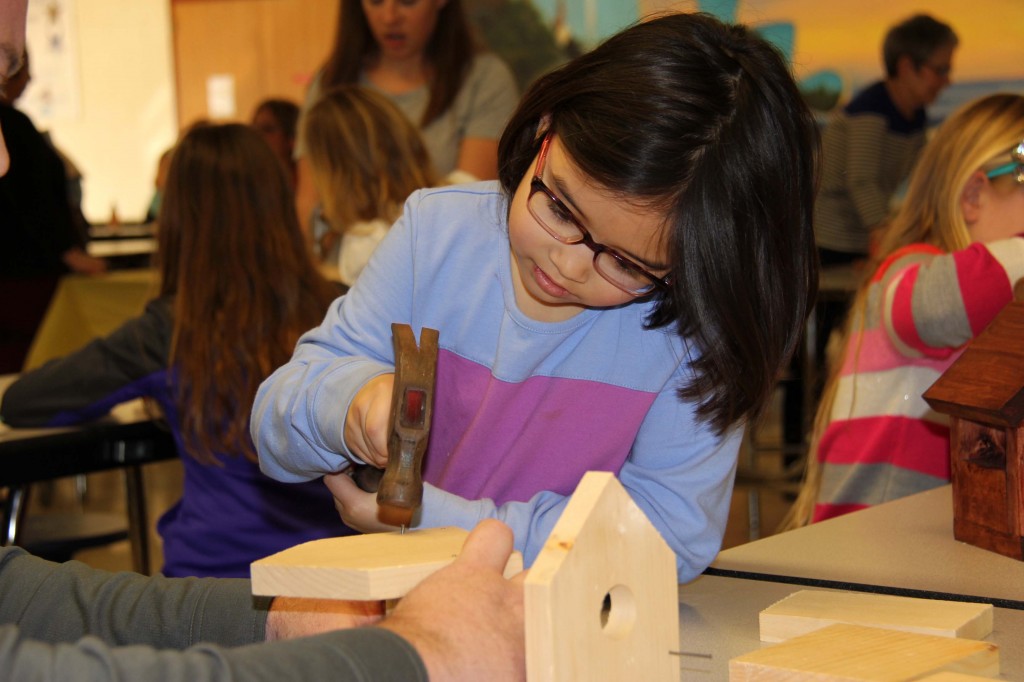
Coffin takes photographs of the students and smiles at all the activity around her. “None of this would be possible without the grant,” she observes. “The Virginia Beach Education Foundation is a wonderful organization to fund such projects. Without them, the money just isn’t there for us to do things like this.”
For more information about the Virginia Beach Education Foundation and to see more Adopt A+ Grants in action, visit www.vbef.org. If you or your organization wants to support innovative and creative learning programs to benefit VBCPS students and teachers, contact VBEF coordinator Debbie Griffey at (757) 263-1337 or debbie.griffey@vbschools.com.

Hey what a cool project! So glad to see our sponsorship going toward such an engaging project. Looks like you had a lot of fun and helped our environment at the same time. I hope you all got A’s for your four B’s.